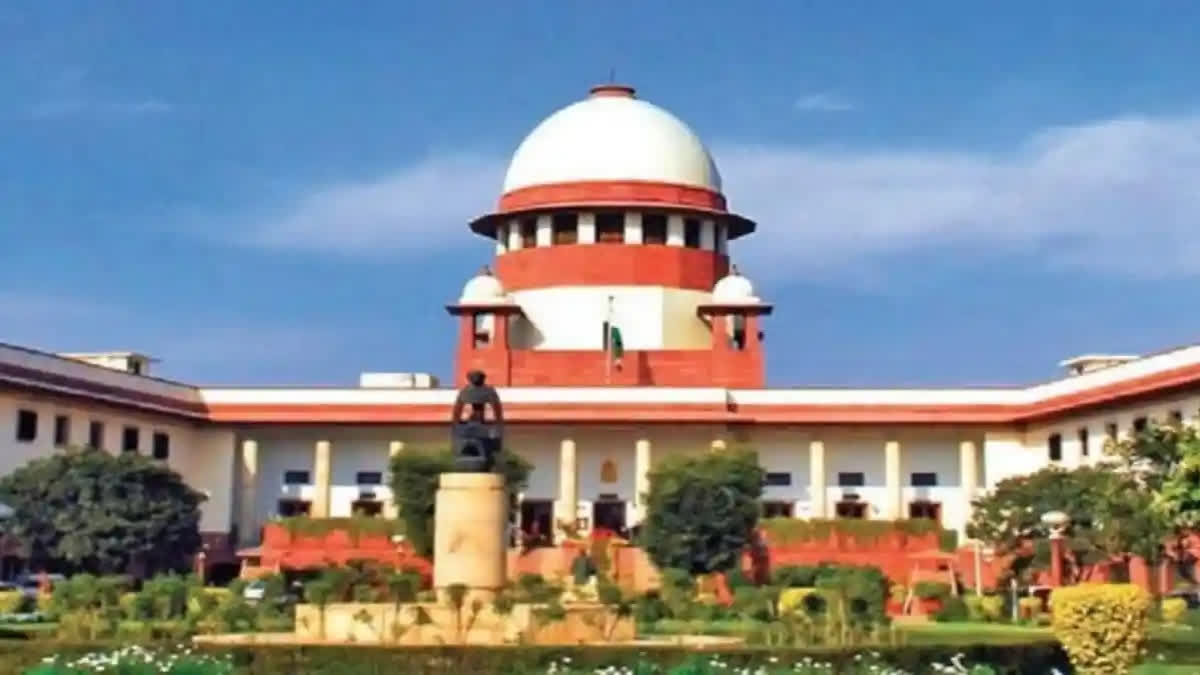New Delhi:The Supreme Court said that mere delay in trial about grave offences cannot be used as a ground to grant bail while rejecting a plea by an alleged member Gurwinder Singh of the banned terrorist organisation 'Sikhs for Justice' run by the US-based Gurpatwant Singh Pannun.
A bench comprising justices MM Sundresh and Aravind Kumar said, “The material available on record indicates the involvement of the appellant in furtherance of terrorist activities backed by members of banned terrorist organisation involving the exchange of large quantum of money through different channels, which need to be deciphered." The bench said that in such a scenario if the appellant is released on bail there is every likelihood that he will influence the key witnesses of the case, which might hamper the process of justice.
Petitioner Gurwinder Singh was booked for various Sections under IPC and also the Unlawful Activities (Prevention) Act (UAPA). The bench said the conventional idea in bail jurisprudence vis-à-vis ordinary penal offences that the discretion of courts must tilt in favour of the oft-quoted phrase--‘bail is the rule, jail is the exception’--unless circumstances justify otherwise--does not find any place while dealing with bail applications under UAPA.
“The ‘exercise’ of the general power to grant bail under the UAP Act is severely restrictive in scope. The form of the words used in proviso to Section 43D (5)– ‘shall not be released’ in contrast with the form of the words as found in Section 437(1) CrPC - ‘may be released’– suggests the intention of the legislature to make bail, the exception and jail, the rule”, it said.
The bench said it is interesting to note that there is no analogous provision traceable in any other statute to the one found in Section 43D (5) of the UAPA and in that sense, the language of bail limitation adopted therein remains unique. The bench said in dealing with bail applications under UAPA, the courts are merely examining if there is justification to reject bail and the ‘justifications’ must be searched from the case diary and the final report submitted before the special court. The legislature has prescribed a low, ‘prima facie’ standard, as a measure of the degree of satisfaction, to be recorded by the court when scrutinising the justifications (materials on record), it added.
